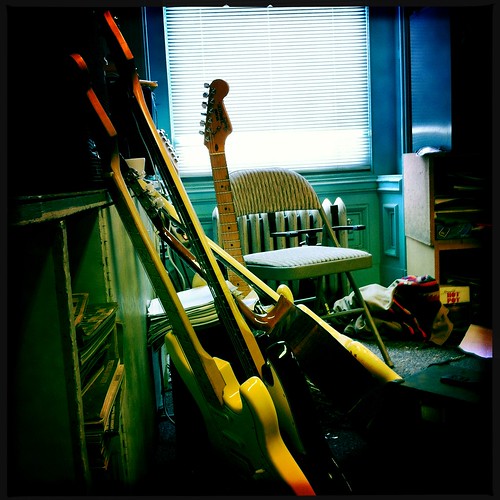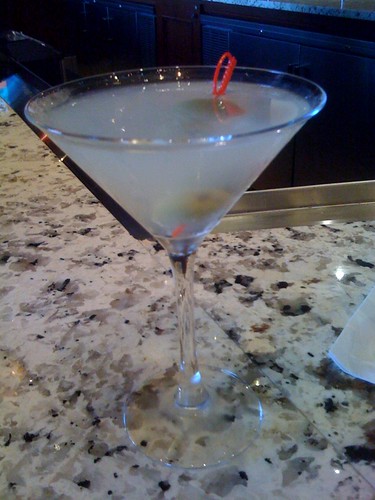In the course of researching the lives of really productive, creative people, I’ve found that one they invariably do is strip their lives down to a couple essential things, and that’s it. If you’re a director, and you’re married, and you decide to write a book or take up sailing or drug use, something’s going to fail. The people who get stuff done learn to be good at zeroing in on the couple important things in their life; focusing on those; and learning to be content with what may seem like a slightly boring life.
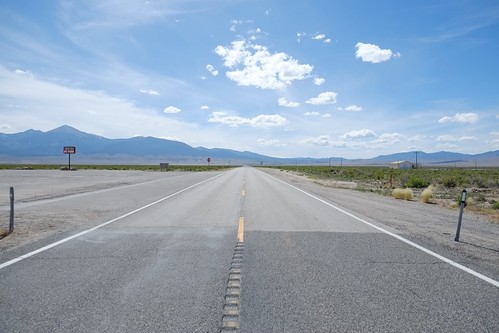
Highway 50: slightly boring, but still interesting to drive through
So this interview with Cloud Atlas author David Mitchell jumped out at me.
The world is very good at distracting us. Much of the ingenuity of our remarkable species goes towards finding new ways to distract ourselves from things that really matter. The internet—it’s lethal, isn’t it? Maintaining focus is critical, I think, in the presence of endless distraction. You’ve only got time to be a halfway decent parent, plus one other thing.
For me, that one other thing is: I’ve got to be writing. I have a few ways to make sure I can carve out time.
Part one: Neglect everything else.
Part two: Get disciplined. Learn to rush to your laptop and open it up. Open the file without asking yourself if you’re in the mood, without thinking about anything else. Just open the file: and then you’re safe. Once the words are on the screen, that becomes your distraction.
Of course, it’s not distraction—it’s work, and it’s wonderful when it goes well. I’m sure other, more disciplined people can do it without needing to rush, but I have to. The moment you think okay, it’s work time, and face down the words, you rush past all the other things asking for your attention.
Part three: Keep the Apple homepage, because it’s rather boring. If your homepage is the website of your favorite newspaper, you’ve had it.
I’m not sure everyone finds the Apple homepage quite so boring– all the shiny blink things!– but otherwise, right on. A bit later, he adds,
Just remember, this is how you earn a living. Really hardworking people at the publisher’s are relying on your next book for their bonuses, to feed their kids, pay their mortgage. You owe it to them not to let years fritter away fruitlessly. First and foremost, of course, you owe it to yourself, and you owe it to your book—but if that isn’t getting the job done, remember that it’s other people’s livelihoods on the line as well, not just yours.
But Mitchell’s advice is true even if you don’t make a living as a full-time writer– or more specifically, if you don’t make a living writing novels like Cloud Atlas, or that matter, well-reviewed and critically respected nonfiction trade books (ahem).
The reality is, most writers you’ve heard of, most writers you like, aren’t full-time writers. Very few are.
This is true of musicians, painters, and just about everyone. One of my favorite singers, the great R&B artist Kendra Morris, works (or until recently worked) as a bartender at the Library, a bar in the East Village. A shocking number of great singers I discover on Spotify turn out to have one or two CDs, and are production assistants or editors or run A/V at conference centers or work in fashion.
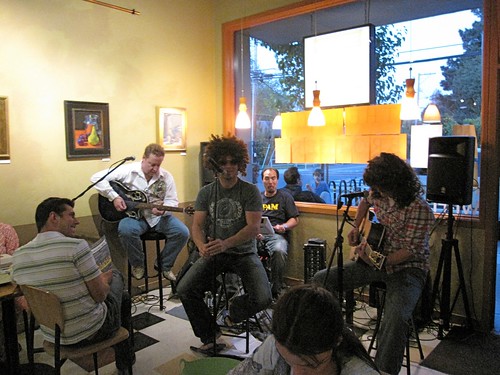
Bell Brothers, Cafe Zoë, Menlo Park
Or they have a couple good years as full-time musicians, then go back to a life where the music isn’t what pays the bills. There’s nothing at all wrong with this.
The good news is, it’s possible to do fine creative work without doing it 24/7, or being a jerk about how you must Sacrifice All To The Muse (which all too often translates into “I must sacrifice you to the Muse, Gladys”). Lots of people who try to do that end up writing or playing a couple hours a day, and spending the rest of the time agonizing over the fact that they’re not getting more done. Or, like F. Scott Fitzgerald and countless others, they pass the time drinking.
Here’s one last important point: a life is one that’s reduced down to a few essentials that you pursue with dedication, and nothing else, is actually a good life. When I was writing The Distraction Addiction, I interviewed a young Buddhist who was in the process of giving way his computer and most of his other worldly goods.
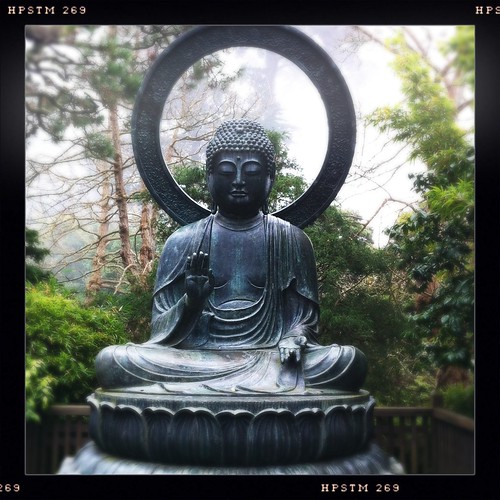
Buddha in the Japanese Tea Garden
He explained what he’d learned from the monks he studied with. Renunciation isn’t about making your life poorer, he said; it’s about making your life richer. It’s about cutting out all the distractions and things that don’t matter, so the things that do matter have space to flourish, and you have time to devote to them.
This is exactly what Mitchell is advocating: a life where you choose the couple things that you need to do, and you do them. And you renounce everything else.
